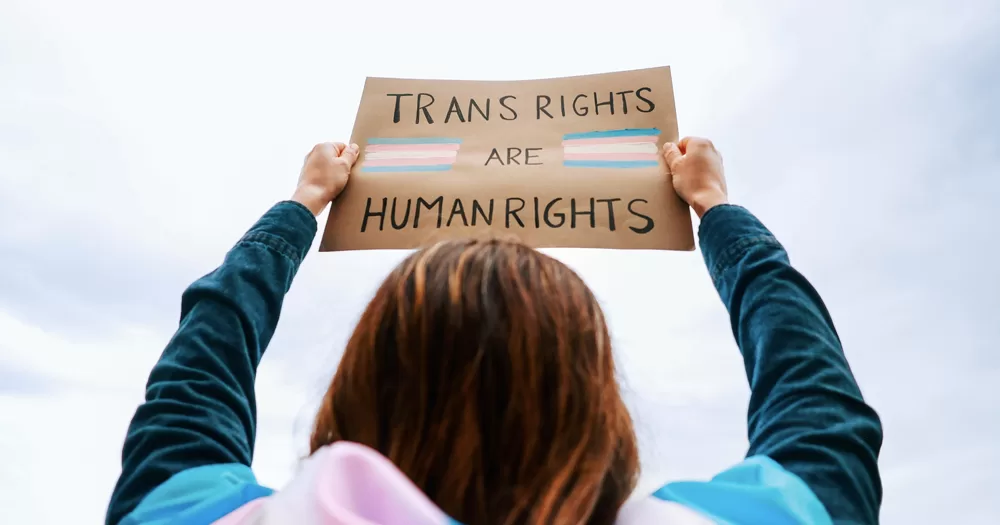A total of 61 trans individuals have submitted applications against Hungary to the European Court of Human Rights in an attempt to restore legal gender recognition in the country. Many of them also went on hunger strike to protest the legal situation for trans folks in the country.
In the past, Hungary used to have one of the most progressive systems for legal gender recognition in Europe. However, the situation changed in 2020, when the Hungarian Parliament passed legislation establishing that the legal definition of gender in the country would be exclusively based on the sex assigned at birth, thus banning legal gender recognition for trans people.
The legislation was introduced without any social or professional debate on the matter. Moreover, it was later confirmed by a decision taken by the Hungarian Constitutional Court in February 2023, when the law was upheld.
Following the court’s ruling, LGBTQ+ organisation Háttér Society decided to bring the case to the European Court of Human Rights. Nearly 100 people responded to their initial call in February 2023, which allowed them to start the first round of strategic litigation with a total of 61 applications.
As a result of the legislation passed in 2020, all of the trans people represented by the Háttér Society were unable to request legal recognition of their preferred gender, even in cases where they could provide a medical opinion to sustain their application. The real-life consequence for many of them was being forced to share private information on a daily basis and in a variety of situations, including at work, during a police check or when paying with credit card.
Visualizza questo post su Instagram
According to the Háttér Society, this is in direct violation of Article 8 of the European Convention of Human Rights, which protects the right to respect of private life. In the context of gender recognition, the Court has previously specified that the State has a positive obligation to provide “quick, transparent and accessible procedures” for trans people to change their gender marker in official documents.
“It is important to make it clear to the ECtHR that the lack of legal gender recognition is a structural problem that systematically deprives trans people of their fundamental rights,” said Eszter Polgári, the director of the Háttér Society’s legal programme.
“The February decision of the Constitutional Court, which was narrow-minded and ignored the fundamental rights dimension of the issue, left no hope for any domestic remedy, and we encourage all those affected by the ban to join our strategic case before the ECtHR,” Polgári concluded.
© 2023 GCN (Gay Community News). All rights reserved.
Support GCN
GCN is a free, vital resource for Ireland’s LGBTQ+ community since 1988.
GCN is a trading name of National LGBT Federation CLG, a registered charity - Charity Number: 20034580.
GCN relies on the generous support of the community and allies to sustain the crucial work that we do. Producing GCN is costly, and, in an industry which has been hugely impacted by rising costs, we need your support to help sustain and grow this vital resource.
Supporting GCN for as little as €1.99 per month will help us continue our work as Ireland’s free, independent LGBTQ+ media.
